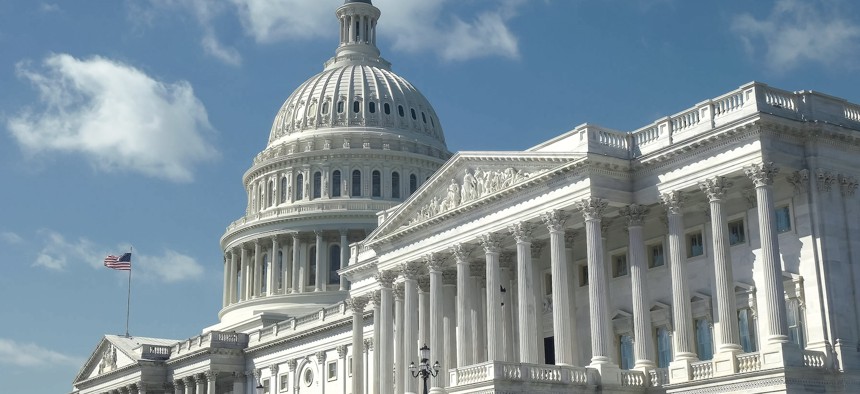Senate bill aims to bring more private sector participation to federal AI innovation

crbellette/Getty Images
The latest piece of AI-focused legislation seeks to make private sector collaboration a top priority for several agencies.
A cohort of bipartisan senators introduced new artificial intelligence-focused legislation Thursday, which aims to consolidate U.S. leadership in emerging technologies through enhanced private sector collaboration.
The Future of AI Innovation Act, cosponsored by Sens. Todd Young, R-Ind, Maria Cantwell, D-Wash., Marsha Blackburn, R-Tenn., and John Hickenlooper, D-Colo., responds to the larger global race to lead in new AI and emerging technologies, like quantum computing systems and applied biosciences.
Key provisions in the text would allocate more federal support to the National Institutes of Standards and Technology for standards development in critical tech fields; launch an AI testbed competition helmed jointly by NIST and the Department of Energy’s National Laboratories; and ask leadership within the Department of Commerce, State Department and White House Office of Science and Technology Policy to form more international alliances focused on developing a consensus on AI standards.
The bill also asks for participation in AI scientific and technological advancement from the Government Accountability Office and the National Science Foundation to identify hindrances to AI application across the federal government and to further spearhead initiatives for private sector collaboration, respectively.
“The Future of AI Innovation Act is critical to maintaining American leadership in the global race to advance AI,” Young said in a press release. “This bipartisan bill will create important partnerships between government, the private sector, and academia to establish voluntary standards and best practices that will ensure a fertile environment for AI innovation while accounting for potential risks.”
Establishing a series of common standards to guide the international development of AI is crucial within the bill, a task that NIST has been prioritizing among the litany of policy mandates handed down to the agency. The Future of AI Innovation Act expands these and also tasks the NSF and Energy to contribute by performing benchmarking and capability evaluations within testbed environments.
Bringing more private sector participation into these endeavors also features in the Biden administration’s tech policy goals, with other federal agencies like the Department of Defense planning to foster stronger private sector ties within their research and development agendas.
“Our bill ensures the United States will lead on AI for decades to come. It promotes public-private collaboration to drive innovation and competitiveness,” Cantwell said in a statement. “The NIST AI Safety Institute, testbeds at our national labs, and the grand challenge prizes will bring together private sector and government experts to develop standards, create new assessment tools, and overcome existing barriers. It will lay a strong foundation for America’s evolving AI tech economy for years to come.”



